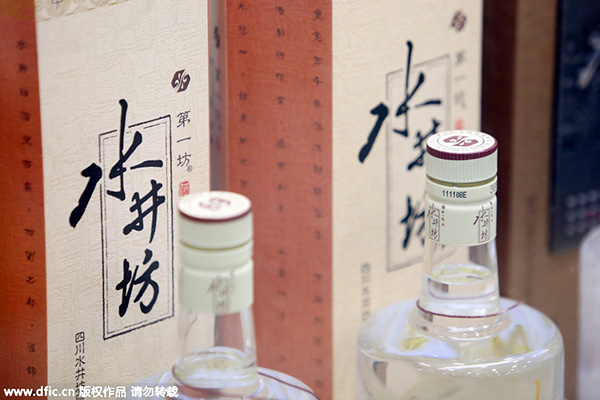 |
|
Bottles of Shuijingfang liquor are for sale at a store in Shanghai, China, Feb 2, 2015. [Photo/IC] |
Despite having a huge consumer base, the company that makes the unique Chinese spirits brand Shuijingfang was feeling the aftershocks of the government's anti-corruption drive, which hit the luxury label sector.
"About the time I arrived, the industry started to go on a slide," Rice told Marketplace, a radio program produced by American Public Media in the United States in November, 2013. "Our sales (were) down 50 percent. We had to give a warning to the stock market that our profit (would) be down."
To cope with the impact, baijiu companies had to change their price strategies by focusing on middle market consumers, according to Euromonitor International Ltd, a market intelligence firm based in the United Kingdom.
As the austerity campaign started to bite, sales of liquor brands costing more than 500 yuan ($79.4), dropped by 50 percent. It was bad news for Swellfun, one of the oldest breweries here, and now part of Diageo Plc, the world's largest alcoholic beverages conglomerate based in the UK.
At one point, the company's cheapest label retailed at 858 yuan, so Rice decided to develop a range of medium-to low-end spirits, priced between 98 yuan and 530 yuan. But those labels have struggled to take off. Moving into the lucrative e-commerce market was another bold move, while baijiu, which is made from a mixture of rice, wheat and corn, was rolled out to Western consumers.
"My job role today is to take a very traditional Chinese company in a very traditional Chinese industry and adapt Western practices to it," he told Marketplace back in 2013. "I've got to globalize the company."
Rice, who is leaving Swellfun at the end of this month to pursue other undisclosed ventures in Shanghai, also streamlined the company by closing down a project in Sichuan province. The decision saved the iconic brand 682 million yuan in cash and 1 billion yuan in future investment. Brought into to run Swellfun after helping multinational corporation Tyson Foods break into the Chinese market, Rice has played a major role as the company went through a tough financial climate.
In 2012, its annual revenue was 1.63 billion yuan. A year later, it dropped to 486 million yuan before falling again to 365 million yuan in 2014. In the first half of this year, revenue was 388 million yuan, an increase of 174.1 percent.
